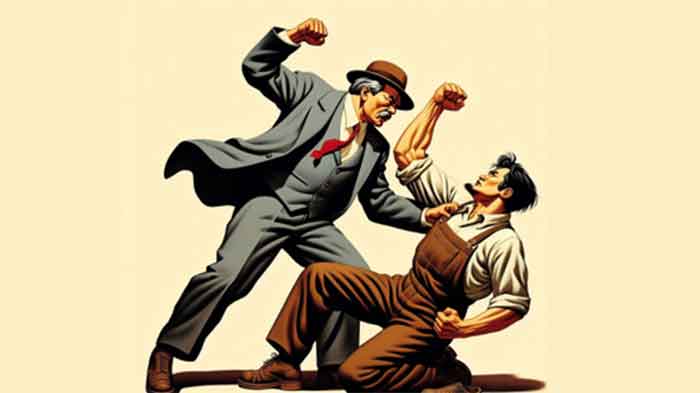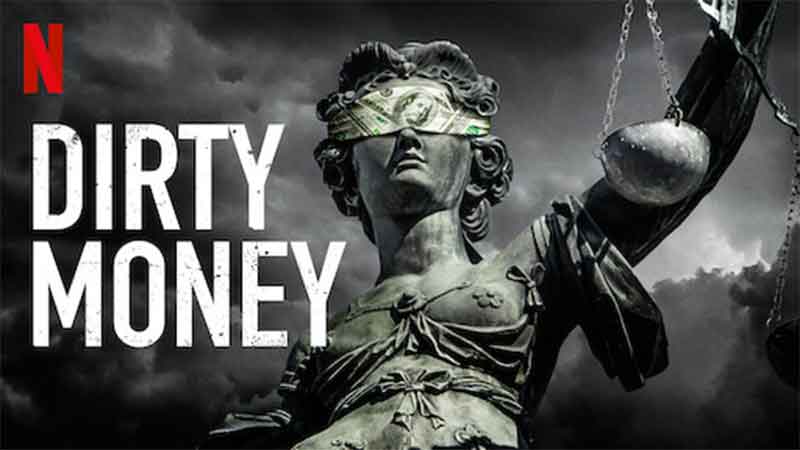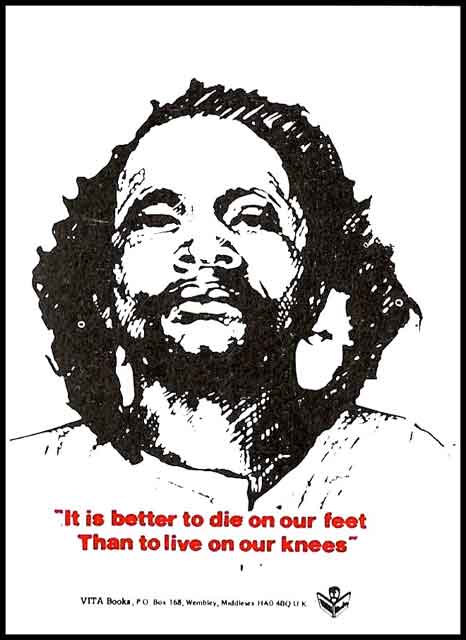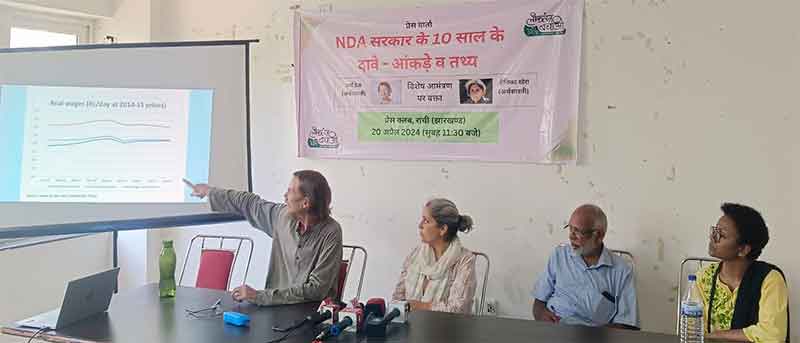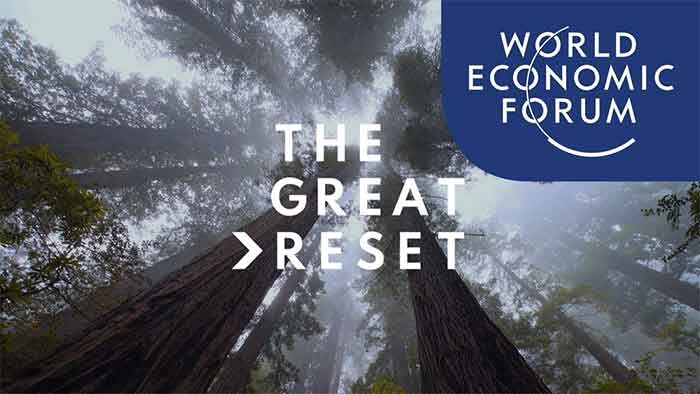
Sold under the pretence of a quest for optimising well-being and ‘happiness’, capitalism thrives on the exploitation of peoples and the environment. What really matters is the strive to maintain viable profit margins. The prevailing economic system demands ever-increasing levels of extraction, production and consumption and needs a certain level of annual GDP growth for large firms to make sufficient profit.
But at some point, markets become saturated, demand rates fall and overproduction and overaccumulation of capital becomes a problem. In response, we have seen credit markets expand and personal debt increase to maintain consumer demand as workers’ wages have been squeezed, financial and real estate speculation rise (new investment markets), stock buy backs and massive bail outs and subsidies (public money to maintain the viability of private capital) and an expansion of militarism (a major driving force for many sectors of the economy).
We have also witnessed systems of production abroad being displaced for global corporations to then capture and expand markets in foreign countries.
The old normal
Much of what is outlined above is inherent to capitalism. But the 1980s was a crucial period that helped set the framework for where we find ourselves today.
Remember when the cult of the individual was centre stage? It formed part of the Reagan-Thatcher rhetoric of the ‘new normal’ of 1980s neoliberalism.
In the UK, the running down of welfare provision was justified by government-media rhetoric about ‘individual responsibility’, reducing the role of the state and the need to ‘stand on your own two feet’. The selling off of public assets to profiteering corporations was sold to the masses on the basis of market efficiency and ‘freedom of choice’.
The state provision of welfare, education, health services and the role of the public sector was relentlessly undermined by neoliberal dogma and the creed that the market (global corporations) constituted the best method for supplying human needs.
Thatcher’s stated mission was to unleash the entrepreneurial spirit by rolling back the ‘nanny state’. She wasted little time in crushing the power of the trade unions and privatising key state assets.
Despite her rhetoric, she did not actually reduce the role of the state. She used its machinery differently, on behalf of business. Neither did she unleash the ‘spirit of entrepreneurialism’. Economic growth rates under her were similar as in the 1970s, but a concentration of ownership occurred and levels of inequality rocketed.
Margaret Thatcher was well trained in perception management, manipulating certain strands of latent populist sentiment and prejudice. Her free market, anti-big-government platitudes were passed off to a section of the public that was all too eager to embrace them as a proxy for remedying all that was wrong with Britain. For many, what were once regarded as the extreme social and economic policies of the right became entrenched as the common sense of the age.
Thatcher’s policies destroyed a fifth of Britain’s industrial base in just two years alone. The service sector, finance and banking were heralded as the new drivers of the economy, as much of Britain’s manufacturing sector was out-sourced to cheap labour economies.
Under Thatcher, employees’ share of national income was slashed from 65% to 53%. Long gone are many of the relatively well-paid manufacturing jobs that helped build and sustain the economy. In their place, the country has witnessed the imposition of a low taxation regime and low-paid and insecure ‘service sector’ jobs (no-contract work, macjobs, call centre jobs – many of which soon went abroad) as well as a real estate bubble, credit card debt and student debt, which helped to keep the economy afloat.
However, ultimately, what Thatcher did was – despite her rhetoric of helping small-scale businesses and wrapping herself in the national flag – facilitate the globalisation process by opening the British economy to international capital flows and allowing free rein for global finance and transnational corporations.
Referring back to the beginning of this article, it is clear whose happiness and well-being counts most and whose does not matter at all as detailed by David Rothkopf in his 2008 book ‘Superclass: The Global Power Elite and the World They Are Making‘. Members of the superclass belong to the megacorporation-interlocked, policy-building elites of the world and come from the highest echelons of finance, industry, the military, government and other shadow elites. These are the people whose interests Margaret Thatcher was serving.
These people set the agendas at the Trilateral Commission, Bilderberg, G-7, G-20, NATO, the World Bank and the World Trade Organization.
And let us not forget the various key think tanks and policy making arenas like the Council on Foreign Relations, the Brookings Institute and Chatham House as well as the World Economic Forum (WEF), where sections of the global elite forge policies and strategies and pass them to their political handmaidens.
Driven by the vision of its influential executive chairman Klaus Schwab, the WEF is a major driving force for the dystopian ‘great reset’, a tectonic shift that intends to change how we live, work and interact with each other.
The new normal
The great reset envisages a transformation of capitalism, resulting in permanent restrictions on fundamental liberties and mass surveillance as livelihoods and entire sectors are sacrificed to boost the monopoly and hegemony of pharmaceutical corporations, high-tech/big data giants, Amazon, Google, major global chains, the digital payments sector, biotech concerns, etc.
Under the cover of COVID-19 lockdowns and restrictions, the great reset is being rolled out under the guise of a ‘Fourth Industrial Revolution’ in which smaller enterprises are to be driven to bankruptcy or bought up by monopolies. Economies are being ‘restructured’ and many jobs and roles will be carried out by AI-driven technology.
The WEF says the public will ‘rent’ everything they require: stripping the right of ownership under the guise of a ‘green economy’ underpinned by the rhetoric of ‘sustainable consumption’ and ‘climate emergency’.
At the same time new (‘green product’) markets are being created and, on the back of COVID, fresh opportunities for profit extraction are opening up abroad. For instance, World Bank Group President David Malpass has stated that poorer countries will be ‘helped’ to get back on their feet after the various lockdowns that have been implemented in response to the Covid-19 crisis. This ‘help’ will be on condition that neoliberal reforms and the undermining of public services are implemented and become further embedded.
Just a month into the COVID crisis, the IMF and World Bank were already facing a deluge of aid requests from developing countries. Scores of countries were asking for bailouts and loans. Ideal cover for rebooting the global economy via a debt crisis and the subsequent privatisation of national assets and the further ‘structural adjustment’ of economies.
Many people waste no time in referring to this as some kind of ‘Marxist’ or ‘communist’ takeover of the planet because a tiny elite will be dictating policies. This has nothing to do with Marxism. An authoritarian capitalist elite – supported by their political technocrats – aims to secure even greater control of the global economy. It will no longer be a (loosely labelled) ‘capitalism’ based on ‘free’ markets and competition (not that those concepts ever really withstood proper scrutiny). Economies will be monopolised by global players, not least e-commerce platforms run by the likes of Amazon, Walmart, Facebook and Google and their multi-billionaire owners.
Essential (for capitalism) new markets will also be created through the ‘financialisation’ and ownership of all aspects of nature, which is to be colonised, commodified and traded under the fraudulent notion of protecting the environment.
The so-called ‘green economy’ will fit in with the notion of ‘sustainable consumption’ and ‘climate emergency’. A bunch of billionaires and their platforms will control every aspect of the value chain. Of course, they themselves will not reduce their own consumption or get rid of their personal jets, expensive vehicles, numerous exclusive homes or ditch their resource gobbling lifestyles. Reduced consumption is meant only for the masses.
They will not only control and own data about consumption but also control and own data on production, logistics, who needs what, when they need it, who should produce it, who should move it and when it should be moved. Independent enterprises will disappear or become incorporated into the platforms acting as subservient cogs. Elected representatives will be mere technocratic overseers of these platforms and the artificial intelligence tools that plan and determine all of the above.
The lockdowns and restrictions we have seen since March 2020 have helped boost the bottom line of global chains and the e-commerce giants and have cemented their dominance. Many small and medium-size independent enterprises have been pushed towards bankruptcy. At the same time, fundamental rights have been eradicated under COVID19 government measures.
Politicians in countries throughout the world have been using the rhetoric of the WEF’s great reset, talking of the need to ‘build back better’ for the ‘new normal’. They are all on point. Hardly a coincidence. Essential to this ‘new normal’ is the compulsion to remove individual liberties and personal freedoms given that, in the ‘green new normal’, unfettered consumption will no longer be an option for the bulk of the population.
It has long been the case that a significant part of the working class has been deemed ‘surplus to requirements’ – three decades ago, such people were sacrificed on the altar of neo-liberalism. They lost their jobs due to automation and offshoring. They have had to rely on meagre state welfare and run-down public services.
But what we are now seeing is the possibility of hundreds of millions around the world being robbed of their livelihoods. Forget about the benign sounding ‘Fourth Industrial Revolution’ and its promised techno-utopia. What we are witnessing right now seems to be a major restructuring of capitalist economies.
With AI and advanced automation of production, distribution and service provision (3D printing/manufacturing, drone technology, driverless vehicles, lab grown food, farmerless farms, robotics, etc), a mass labour force – and therefore mass education, mass welfare, mass healthcare provision and entire systems that were in place to reproduce labour for capitalist economic activity – will no longer be required. As economic activity is restructured, labour’s relationship to capital is being transformed.
In a reorganised system that no longer needs to sell the virtues of excessive individualism (consumerism), the levels of political and civil rights and freedoms we have been used to will not be tolerated.
Neoliberalism might have reached its logical conclusion (for now). Making trade unions toothless, beating down wages to create unimaginable levels of inequality and (via the dismantling of Bretton Woods) affording private capital so much freedom to secure profit and political clout under the guise of ‘globalisation’ would inevitably lead to one outcome.
A concentration of wealth, power, ownership and control at the top with large sections of the population on state-controlled universal basic income and everyone subjected to the discipline of an emerging biosecurity surveillance state designed to curtail liberties ranging from freedom of movement and assembly to political protest and free speech.
Perception management is of course vital for pushing through all of this. Rhetoric about ‘liberty’ and ‘individual responsibility’ worked a treat in the 1980s to help bring about a massive heist of wealth. This time, it is a public health scare and ‘collective responsibility’ as part of a strategy to help move towards near-monopolistic control over economies by a handful of global players.
And the perception of freedom is also being managed. Once vaccinated many will begin to feel free. Freer than under lockdown. But not really free at all.
Colin Todhunter is an independent writer specialising in development, food and agriculture
GET COUNTERCURRENTS DAILY NEWSLETTER STRAIGHT TO YOUR INBOX

